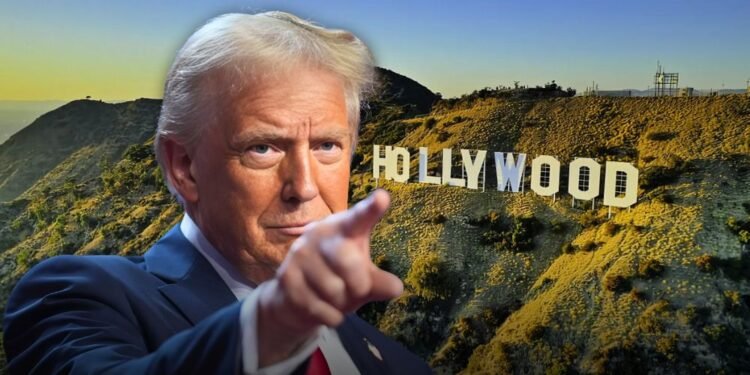In a move that could shake the global entertainment industry, the U.S. President Donald Trump announced plans to impose a 100% tariff on all films produced outside the United States.
The proposal, framed as a response to what he calls a “national security threat,” aims to redirect film production back to American soil.
According to Trump, countries like Canada, the UK, Ireland, and Australia have been attracting Hollywood productions with generous tax incentives and subsidies—offers that he believes are draining jobs from the U.S. and spreading foreign messaging through American entertainment.
“The U.S. film industry is dying a very fast death,” he said in a recent interview, urging swift action to reverse the trend.
How would the tariff work?
While the exact implementation details remain unclear, Trump has instructed the Department of Commerce and the U.S. Trade Representative to begin formal proceedings.
The proposal could affect major Hollywood productions currently being filmed abroad—many of which, ironically, are still financed by American studios.
Upcoming blockbusters like Avengers: Doomsday, Supergirl, the next Avatar installment, and a Christopher Nolan-led Odyssey project could all face added import costs if produced outside the U.S. It’s still uncertain whether the tariff would apply based on shooting location, production origin, or distribution rights.
Commerce Secretary Howard Lutnick confirmed the administration is “actively working on the mechanics” and that Trump plans to meet with Hollywood stakeholders to discuss the plan in more depth.
Global reactions and concerns
Film industries outside the U.S. have expressed growing concern. The UK, a longstanding hub for major U.S. productions including the Harry Potter and James Bond franchises, fears significant disruptions.
Britain’s entertainment sector is worth £21 billion and supports over 250,000 jobs—many of which are tied to American-led projects.
In Ireland, where over 850 international productions have benefited from tax reliefs since 2016, film executives are watching developments closely. A sudden tariff on U.S.-funded, Irish-shot films could undermine years of cross-border collaboration.
This policy shift could also introduce a new layer of complexity for global film financing. With Hollywood now deeply intertwined with foreign crews, studios, and tax systems, the proposed tariffs might increase costs and reduce the global diversity of storytelling on American screens.











